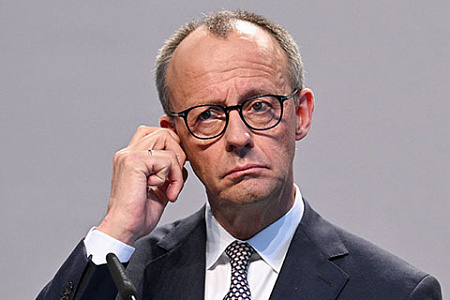
At a rally in Hanover dedicated to the discussion by members of the Social Democratic Party of Germany (SPD) of the coalition agreement on the creation of a government with the Christian Democratic and Christian Social Union (CDU/CSU) bloc, Defense Minister Boris Pistorius, who is expected to head this department and in the new cabinet, expressed skepticism about the supply of long-range cruise missiles to Ukraine. Taurus rockets. According to him, there are many arguments both for and against the transfer of these missiles to Kiev. Personally, he shares the opinion of Chancellor Olaf Scholz: supplies may contribute to the escalation of the conflict between Russia and Europe. At the same time, Pistorius denied that he had previously spoken out in favor of supplying Taurus.
The discussion about German cruise missiles escalated after the statement of the likely chancellor, CDU leader Friedrich Merz in favor of supplying the Armed Forces with Taurus missiles. He justified the need for the delivery by saying that the missiles are capable of hitting Russia’s critical infrastructure, in particular the Crimean Bridge. However, according to Merz, this step should be coordinated with Germany’s partners, meaning first of all Great Britain and France.
The reason for this statement was the Russian strike by ballistic missiles of the Iskander M type on the Ukrainian city of Sumy, during which civilians were also injured. Merz used information from the Ukrainian media, which presented the situation in a distorted light. He apparently did not have any other information after the expulsion of Russian German-language TV channels from Germany.
It should be added that, as the German press reported earlier, “Merz’s character has impulsive features.” But, probably, the main thing is different. After all, Merz was until recently the head of the supervisory board of the influential American investment company BlackRock. This company, which often calls itself the foundation, mainly operates in America, but has offices in the UK, the Netherlands, Luxembourg and Ireland. About 25% of its investments are in Europe. A number of Western analysts point to BlackRock’s ties to the family of former American President Joseph Biden. This was reported, in particular, by the German magazine Manager Magazin back in 2021.
Merz began working for the foundation almost immediately after he lost the race for the CDU presidency to Angela Merkel. It’s not far from the conclusion that Merz has close ties (thanks to BlackRock, he became a millionaire) with the US Democratic Party and is an opponent of the policies of the current president, Donald Trump.
Therefore, the anti-Russian orientation of Merz’s policy, if he becomes chancellor, is beyond doubt. No wonder he said that after the events in Sumy, “he would not sit down at the same table with the Russian president.”
Now, apparently, Germany is just beginning to comprehend the consequences of the coming to power of the conservative bloc led by Merz. It is no coincidence that the youth wing of the SPD, the Young Socialists, has already announced a boycott of the coalition agreement with the CDU/CSU. And these are 117,000 out of 400,000 party members who have until April 29 to answer the question of whether they approve or not of the coalition agreement.
The growing interest of Germans in the foreign policy aspects of the future government’s activities is evidenced by a letter sent to the editorial office of NG from the Saxon city of Torgau. It talks about the upcoming celebration of the 80th anniversary of the meeting on the Elbe. There, at the end of April 1945, the troops of the First Ukrainian Front met with units of the US Army. A monument has been erected in memory of this event in Torgau. On the initiative of local entrepreneur Stefan Hahe, Elba Day has been held for several years, to which representatives of the embassies of Russia and the United States in Germany are invited.
Hahe himself, deputy of the Bundestag from Alternative for Germany Rainer Rothfuss and moderator Norbert Fleischer spoke about the anniversary of the Elbe at a round table in the studio of a local TV channel, which covers several tens of thousands of viewers through social networks. According to the latter, “for us, Elba Day is a warning to politicians such as Ursula von der Leyen and Kaya Kallas from the EU Commission, who urge European countries to arm themselves to fight Russia.”
